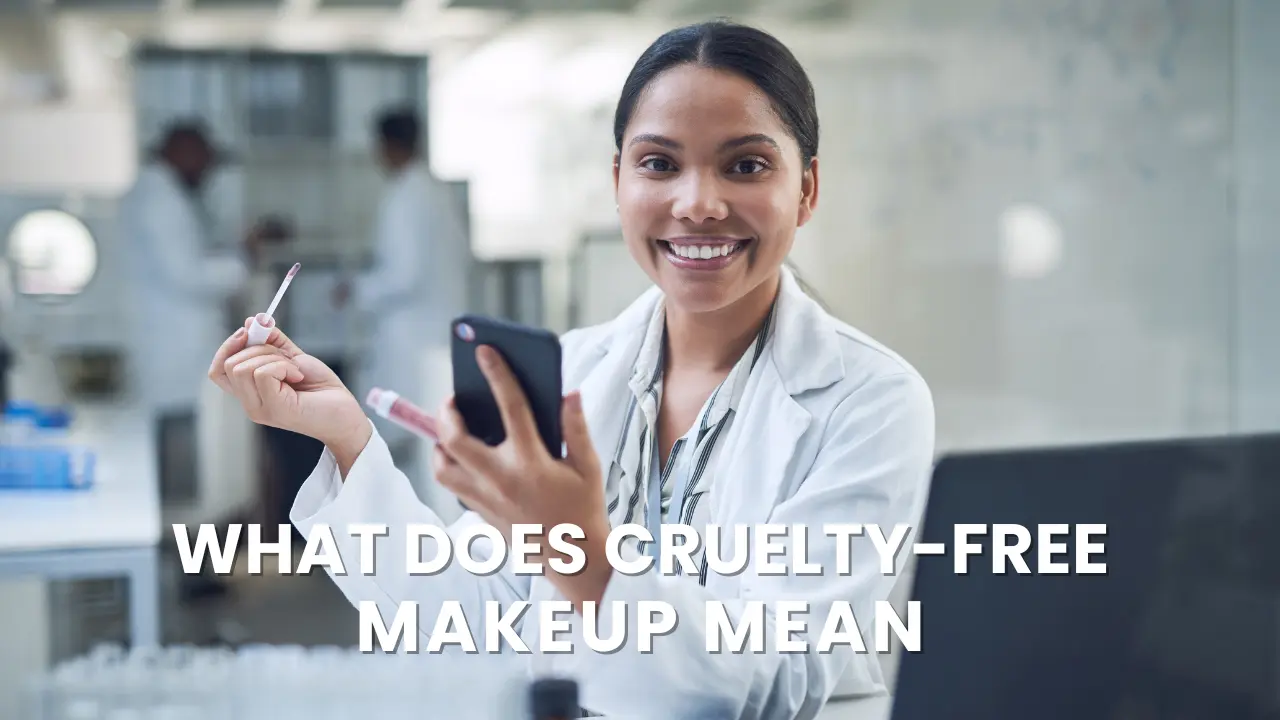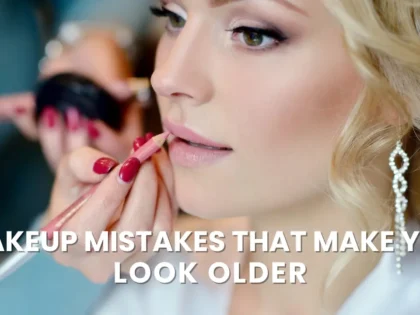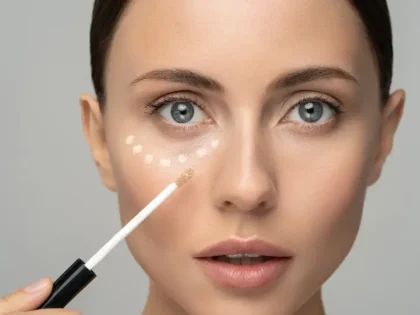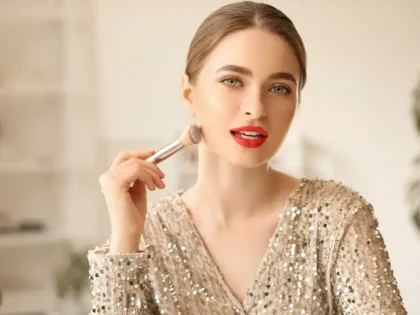What Does Cruelty-Free Makeup Mean

For Distributors & Wholesalers
We welcome partnerships with distributors and wholesalers who wish to expand their business with a trusted and growing cosmetic brand.
Why Partner with Avlon International?
- Wide range of cosmetics: Nail polish, mascara, kajal, eyeliner, liquid lipstick, lipstick & more.
- Premium quality with competitive wholesale pricing.
- Attractive margins and fast-moving products.
- Assured support with marketing materials & promotional offers.
- PAN India shipping with secure packaging.
📦 Minimum Order Quantity (MOQ): 1 master carton (72 trays)
💰 Special Discounts: Available for bulk & long-term partners.
🚚 Dispatch & Delivery: PAN India in around 10-15 days.
📞 Contact Us:
Phone / WhatsApp: +91 88105 67775
Email: contactus@avloninternational.com
Website: www.avloninternational.com
Picture this: you’re standing in the beauty aisle, mascara wand in one hand, moral compass spinning wildly in the other. The label screams “cruelty-free,” but what does cruelty-free makeup mean exactly? Is it just fancy marketing speak, or does it actually signify something meaningful for our furry, feathered, and scaled friends?
If you’ve ever found yourself pondering this question while applying your favorite lipstick, you’re not alone. The world of cruelty-free cosmetics can feel like navigating a maze blindfolded, but fear not! We’re about to embark on a journey that will transform you from a confused beauty enthusiast into a cruelty-free connoisseur.
What Does Cruelty-Free Makeup Mean: The Foundation of Ethical Beauty
So, what does cruelty-free makeup mean in the simplest terms? Cruelty-free makeup refers to cosmetic products that have not been tested on animals at any stage of their development or production. This includes both the final product and the individual ingredients that make up your favorite foundation, eyeshadow, or lip gloss.
But here’s where things get interesting (and slightly complicated, because nothing in the beauty world is ever straightforward). The term “cruelty-free” isn’t regulated by any government agency, which means brands can interpret it however they see fit. It’s like the Wild West of beauty terminology, where everyone makes their own rules.
When we dig deeper into what does cruelty-free makeup mean, we discover it’s not just about avoiding animal testing. It encompasses a broader philosophy of creating beauty products without causing harm to animals. This includes considerations about ingredient sourcing, manufacturing processes, and even the company’s overall stance on animal welfare.
Companies like Avlon International have embraced this philosophy, recognizing that modern consumers want beauty products that align with their values. Avlon International understands that today’s makeup enthusiasts don’t want to sacrifice their principles for perfect winged eyeliner – though let’s be honest, sometimes the struggle is real.
The Evolution of Animal Testing in Cosmetics: A Historical Perspective
To truly understand what does cruelty-free makeup mean, we need to take a quick trip back in time. Animal testing in cosmetics became common practice in the 1930s, following some unfortunate incidents with early mascara formulations. Yes, you read that right – our quest for fabulous lashes led to decades of controversial testing practices.
For years, rabbits, mice, and other animals were subjected to various tests to determine the safety of cosmetic ingredients. The infamous Draize test, which involved applying substances to animals’ eyes to test for irritation, became synonymous with cosmetic testing. It wasn’t exactly the glamorous side of the beauty industry that anyone wanted to talk about at cocktail parties.
However, as scientific understanding advanced and public awareness grew, the beauty industry began to evolve. Progressive companies started questioning whether animal testing was necessary, especially when alternative testing methods were becoming available. This shift in thinking paved the way for brands like Avlon International to emerge as leaders in cruelty-free beauty innovation.
Breaking Down the Science: Alternative Testing Methods
Understanding what does cruelty-free makeup mean requires acknowledging the scientific innovations that make animal testing unnecessary. Modern cosmetic companies have access to a variety of alternative testing methods that are often more accurate, cost-effective, and ethically sound than traditional animal testing.
In vitro testing uses human cells and tissues grown in laboratories to test for skin irritation and other reactions. These methods can provide more relevant results since they’re testing on actual human cellular material rather than trying to extrapolate results from different species. It’s like the difference between asking a fish about flying versus asking a bird – you’re going to get more relevant information from the appropriate source.
Computer modeling and artificial intelligence have also revolutionized safety testing. These sophisticated systems can predict how ingredients will interact with human skin based on vast databases of existing knowledge. It’s like having a crystal ball, but with more algorithms and fewer mysterious vapors.
Avlon International has invested in these advanced testing methods, demonstrating that creating safe, effective makeup products doesn’t require compromising animal welfare. Their commitment to innovation shows that understanding what does cruelty-free makeup mean goes beyond simply avoiding animal testing – it’s about embracing better, more ethical practices.
Navigating Certification Labels: Your Guide to Genuine Cruelty-Free Products
When trying to understand what does cruelty-free makeup mean in practical terms, certification labels become your best friends. These little symbols on packaging can help you identify genuinely cruelty-free products amidst a sea of marketing claims.
The Leaping Bunny certification is considered the gold standard in cruelty-free verification. This certification requires companies to commit to no animal testing throughout their supply chain and submit to independent audits. It’s like having a beauty detective ensure that your makeup is truly cruelty-free from start to finish.
PETA’s cruelty-free certification is another widely recognized symbol. Companies that display this certification have signed PETA’s statement of assurance that they don’t conduct, commission, or pay for animal testing. It’s straightforward, no-nonsense verification that many consumers trust.
However, here’s where things get tricky – and why understanding what does cruelty-free makeup mean requires some detective work. Some companies may claim to be cruelty-free while still selling in markets that require animal testing by law. Others might avoid testing their final products but use ingredients that were tested on animals by suppliers.
Avlon International navigates these complexities by maintaining transparent policies about their testing practices and ingredient sourcing. They understand that consumers who care about what does cruelty-free makeup mean want clear, honest information about the products they’re putting on their faces.
The Global Landscape: Laws, Regulations, and Market Dynamics
Understanding what does cruelty-free makeup mean requires examining the global regulatory landscape, which varies significantly from country to country. The European Union banned animal testing for cosmetics in 2013, making it illegal to test finished cosmetic products or their ingredients on animals within the EU. It was a landmark decision that sent shockwaves through the global beauty industry.
India followed suit with similar legislation, and several other countries have implemented or are considering similar bans. These legal changes have forced cosmetic companies to adapt their practices and find alternative testing methods. It’s like a domino effect, but with more lipstick and less falling tiles.
However, some major markets still require animal testing for imported cosmetics, creating a complex web of ethical considerations for global beauty brands. Companies must decide whether to forgo these markets or compromise their cruelty-free status – a choice that defines what does cruelty-free makeup mean for their brand identity.
Avlon International has navigated these challenges by prioritizing markets that align with their cruelty-free values, demonstrating that commercial success and ethical practices can coexist. Their approach shows that understanding what does cruelty-free makeup mean involves making difficult but principled business decisions.
Consumer Power: How Your Choices Shape the Industry
When we explore what does cruelty-free makeup mean for the average consumer, we discover that individual purchasing decisions wield tremendous power. Every time you choose a cruelty-free product, you’re casting a vote for more ethical beauty practices. It’s democracy in action, but with better packaging and more flattering colors.
The rise of social media has amplified consumer voices, making it easier than ever to research brands and share information about their practices. Beauty influencers and conscious consumers regularly discuss what does cruelty-free makeup mean, spreading awareness and holding companies accountable for their claims.
This consumer activism has prompted many traditional beauty companies to reconsider their testing practices. Some have transitioned to cruelty-free operations, while others have invested heavily in alternative testing methods. It’s proof that when consumers speak with their wallets, the industry listens.
Avlon International has been at the forefront of this consumer-driven change, recognizing early on that understanding what does cruelty-free makeup mean is crucial for building lasting relationships with modern beauty enthusiasts. Their responsiveness to consumer values has helped establish them as a trusted name in ethical beauty.
Ingredient Innovation: The Science Behind Cruelty-Free Formulations
Delving deeper into what does cruelty-free makeup mean reveals the incredible innovation happening in cosmetic formulation. Creating effective makeup without animal testing requires extensive knowledge of ingredient interactions, skin chemistry, and product stability. It’s like being a beauty scientist, complete with lab coat and perfectly applied lipstick.
Modern cruelty-free brands utilize extensive databases of ingredient safety information, much of which comes from decades of previous research, food industry data, and human volunteer studies. This wealth of existing knowledge means that formulators can create new products without requiring additional animal testing.
Synthetic alternatives to traditional animal-derived ingredients have also revolutionized the industry. These lab-created components often perform better than their animal-derived counterparts while being more sustainable and consistent in quality. It’s technology and ethics working together to create better beauty products.
Avlon International has invested heavily in ingredient innovation, employing skilled chemists who understand both the science behind effective formulations and what does cruelty-free makeup mean for product development. Their research and development team focuses on creating high-performing products that meet the highest ethical standards.
The Psychology of Ethical Beauty Choices
Understanding what does cruelty-free makeup mean also involves examining the psychological factors that drive consumer behavior. For many people, choosing cruelty-free makeup is about more than just product performance – it’s about aligning their beauty routine with their personal values and identity.
Research suggests that consumers who choose cruelty-free products often experience increased satisfaction and emotional connection with their purchases. There’s something deeply satisfying about knowing that your stunning smoky eye didn’t come at the expense of any furry test subjects. It’s like having your cake and eating it too, except the cake is mascara and it makes your lashes look amazing.
This emotional connection extends beyond individual purchases to brand loyalty. Consumers who care about what does cruelty-free makeup mean often become passionate advocates for their preferred brands, sharing recommendations and defending their choices in beauty forums and social media discussions.
Avlon International has cultivated this type of loyal community by consistently demonstrating their commitment to cruelty-free practices. They understand that when consumers ask what does cruelty-free makeup mean, they’re often seeking a brand they can trust and feel good about supporting.
Addressing Common Myths and Misconceptions
When discussing what does cruelty-free makeup mean, it’s important to address some persistent myths that can confuse consumers. One common misconception is that cruelty-free products are less effective or safe than those tested on animals. This simply isn’t true – alternative testing methods are often more accurate and relevant to human use than animal testing.
Another myth suggests that cruelty-free makeup is always more expensive. While some premium cruelty-free brands do command higher prices, there are excellent affordable options available. The cost difference often reflects factors like ingredient quality, packaging, and brand positioning rather than testing practices alone.
Some people believe that if a product is labeled “not tested on animals,” it’s automatically cruelty-free. However, this phrase can be misleading if the individual ingredients were tested on animals by suppliers, or if the company sells in markets requiring animal testing. Understanding what does cruelty-free makeup mean requires looking beyond surface-level claims.
Avlon International addresses these misconceptions through transparent communication about their practices and commitment to education. They recognize that helping consumers understand what does cruelty-free makeup mean involves dispelling myths and providing clear, accurate information.
The Future of Cruelty-Free Beauty
Looking ahead, the future of what does cruelty-free makeup mean appears increasingly bright. Technological advances continue to improve alternative testing methods, making them more accurate, efficient, and cost-effective. Artificial intelligence and machine learning are revolutionizing how we predict ingredient safety and product performance.
Regulatory trends suggest that more countries will ban cosmetic animal testing in the coming years. This global shift toward cruelty-free practices will likely accelerate innovation and make ethical beauty products more accessible worldwide. It’s a future where asking what does cruelty-free makeup mean might become unnecessary because all makeup will be cruelty-free by default.
Consumer awareness and demand for ethical products continue to grow, particularly among younger demographics who prioritize sustainability and social responsibility. This generational shift is driving fundamental changes in how beauty companies approach product development and marketing.
Avlon International is positioning itself at the forefront of these trends, investing in next-generation technologies and sustainable practices. Their forward-thinking approach demonstrates that understanding what does cruelty-free makeup mean is about more than current practices – it’s about building a more ethical future for the beauty industry.
Making Informed Choices: Your Cruelty-Free Beauty Journey
As we conclude our exploration of what does cruelty-free makeup mean, it’s clear that making informed beauty choices requires ongoing education and attention. The landscape of ethical beauty is constantly evolving, with new products, technologies, and regulations shaping the industry.
Start by researching your current favorite products and brands. Look for certification labels, read company policies, and don’t be afraid to contact customer service with questions about testing practices. Most genuinely cruelty-free companies, like Avlon International, are proud to discuss their ethical commitments and will gladly provide detailed information about their practices.
Consider gradually transitioning your makeup collection to cruelty-free alternatives rather than attempting an overnight overhaul. This approach allows you to find products that work well for your specific needs while staying within budget. Remember, understanding what does cruelty-free makeup mean is a journey, not a destination.
Stay informed about industry developments, regulatory changes, and new product launches. The beauty industry moves quickly, and staying current helps you make the best choices for your values and needs. Social media, beauty blogs, and brand websites are excellent sources for up-to-date information.
Finally, remember that your purchasing decisions have power. Every time you choose a cruelty-free product, you’re supporting companies like Avlon International that prioritize ethical practices. You’re also sending a message to the broader industry that consumers value compassionate beauty choices.
Conclusion: Embracing the Beauty of Ethical Choices
Understanding what does cruelty-free makeup mean empowers you to make beauty choices that align with your values without sacrificing quality or performance. The cosmetic industry has come a long way from its animal testing origins, and the future looks increasingly bright for ethical beauty practices.
Companies like Avlon International prove that it’s possible to create exceptional makeup products while maintaining unwavering commitment to cruelty-free principles. Their success demonstrates that consumers don’t have to choose between effective products and ethical practices – they can have both.
As you continue your beauty journey, remember that every cruelty-free product you choose contributes to a more compassionate industry. Your individual decisions, multiplied by millions of other conscious consumers, create the market demand that drives positive change in the beauty world.
So the next time someone asks you what does cruelty-free makeup mean, you’ll be equipped with the knowledge to provide a comprehensive answer. More importantly, you’ll be able to make informed choices that help you look and feel beautiful while staying true to your values. After all, true beauty comes from knowing that your favorite lipstick didn’t harm any adorable test subjects in its creation – and that’s something worth smiling about.
📌 Disclaimer
The information provided in this blog is for general informational purposes only. While Avlon International makes every effort to ensure the accuracy and reliability of the information shared, we make no representations or warranties of any kind, express or implied, about the completeness, accuracy, reliability, suitability, or availability with respect to the content.
Any reliance you place on such information is therefore strictly at your own risk. Avlon International shall not be held liable for any loss, damage, or inconvenience arising in connection with the use of this blog or its content.
For official details regarding our products, distributor policies, or business partnerships, please contact us directly at WhatsApp +91 88105 67775.




